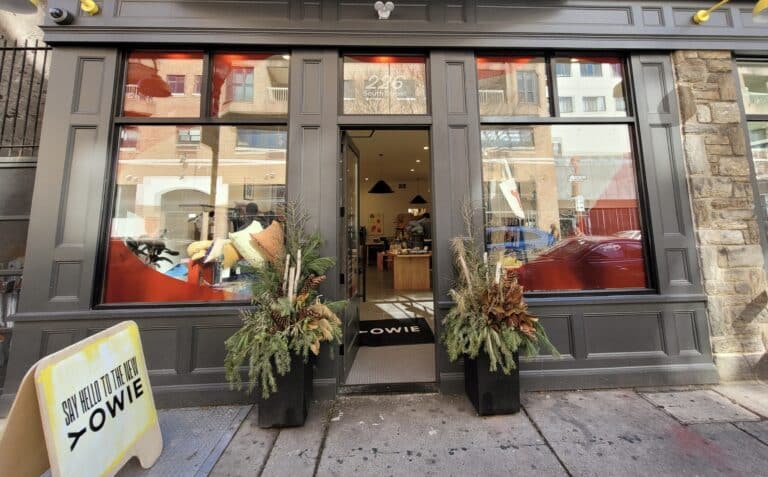Keywords such as green travel, ecotourism, sustainable tourism and responsible travel are becoming increasingly popular in the tourism industry, but what do they really mean? Underlying all these concepts is the protection of nature and culture. It means when you visit a destination, you don’t destroy the local resources; you respect cultures and ways of life and contribute positively to the communities.
Travelers need not stay in a jungle lodge in the Amazon to be a part of the green travel movement. Many hotels, restaurants, tour groups and transportation agencies around the world are increasingly offering environment-friendly facilities. In fact, business and leisure travelers can take small steps themselves to assist in global conservation projects.
Getting There and Around
According to USA Today, a flight from New York to Denver produces as much carbon dioxide per passenger as an SUV produces in a month. Contrary to popular belief, you don’t necessarily have to pay more in order to travel green. Offset the carbon emissions from your air travel by adding on a surcharge (usually between $10 and $40 per flight, depending on the length) to any airline you fly. The website, Seat Guru has a database of the most eco-friendly airlines and planes so you can make your travel selections responsibly.
Pack light for air travel. It is estimated that every additional 10 pounds of luggage per traveler requires an additional 350 million gallons of jet fuel per year.
For shorter trips, especially in Europe and well-connected destinations, take the train instead of flying.
When renting a car, choose a compact fuel-efficient vehicle category or rent a hybrid car. Hertz and Enterprise offer upgrades to diesel and hybrid cars in many locations. When available, drive an electric vehicle to get lodging discounts. The Fairmont Waterfront in Vancouver offers complimentary parking and charging stations for hybrid and electric cars.
Biking, walking and taking public transit are great ways to get around that are Earth-friendly and cheap.
Choosing a Green Hotel
A green hotel refers to a hotel or resort that has significantly reduced its environmental impact in some way. This can be accomplished through participation in a certification program (such as LEED, Leadership in Energy and Environmental Design www.usgbc.org) or simply through voluntary efforts that result in reducing waste.
There are over 800 different green certifications around the world, so choosing a green hotel may feel like a daunting task. It is best to do a little research on the hotel’s website before deciding if it meets your standards, also from a convenience and sustainability point of view. A good rule of thumb is to look at policies relating to reuse of towels and sheets, energy-efficient lighting, low-flow toilets and showers, alternative energy sources like solar or wind power and recycling programs. Make sure to read about how the hotel contributes to the local community.
The Adoba Eco Hotel Rapid City/Mt. Rushmore in South Dakota is a city hotel that has created guestrooms fitted with custom-made low-flow toilets, organic cotton beds, recycled furniture, and flooring, interface modular carpets and walls painted with low volatile organic compound (VOC) paints.
Under the Kimpton Hotels EarthCare Program, all 140 Kimpton hotels and restaurants have adopted environmentally friendly products and practices. They only purchase eco-savvy products such as collateral printed on recycled paper with soy-based ink, water efficient bath fixtures, all natural guest amenities, non-toxic cleaners, organic teas and coffees that help reduce environmental footprints.
During Your Stay
Even if you’re not staying at a green hotel, you can make your home away from home more eco-friendly by keeping up with good practices.
Conserve electricity by turning off air conditioning, heat, television, lights or any other electric devices when not in the room.
In the bathroom, reuse towels, keep showers short and don’t leave behind half used toiletries, including bar soaps.
Recycle your trash and carry your own aluminum water bottle.
Responsible Sightseeing
Dining and sightseeing choices can also have a significant impact on the environment and local communities. Many restaurants have started to advertise that their ingredients are organic, locally sourced and from sustainable farms. You will also realize that eco-friendly restaurants will not use disposable plates, plastic cups, single serve ketchup and bright lights. Try to eat at places that employ the locals and offer smaller portions so you are helping in sustaining jobs while avoiding food waste.
As a tourist, we sometimes like to collect a lot of information about the destination, especially if visiting for the first time. Try not to accumulate maps, brochures and coupons that you will not use. While on tours, travel with an environmentally responsible tour operator. Learn about how the tour operator gives back to the community and what certifications he or she has. EcoExperiencias El Salvador is one such tour operator that has combined environmental education and giving back with tourism. Its turtle conservation program in El Salvador pays the locals to gather and nurture turtle eggs (rather than eating them), while visitors are able to release the baby turtles back into the ocean.
When hiking or camping, stay only in marked areas to avoid destroying vegetation, collect your trash and dispose of it in marked receptacles. Do not remove wildlife from its natural environment including rocks, shells and coral.
When shopping, do not buy items made from endangered species and try to purchase locally produced goods. Be respectful of the local culture. Dress and act according to the appropriate local norms. Learn a few words of the language to show good manners.
At the end of your trip, you can choose to use Sustainable Travel International’s carbon calculator to make a donation that will offset your total emissions from the trip. The money is used towards conservation carbon reforestation projects in developing countries, renewable energy projects in the United States and renewable energy and energy efficiency projects in developing countries.
By doing our individual part, we can all enjoy traveling and making the world a better place at the same time.
Photo credit: Sucheta Rawal








